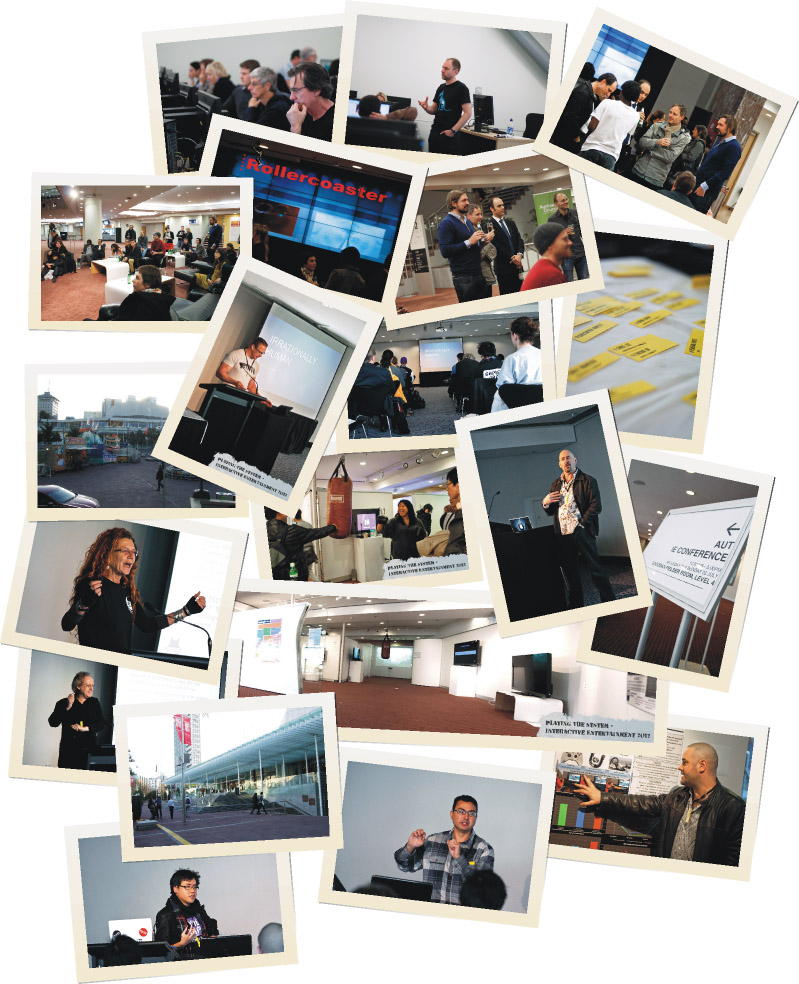IE 2012 was the 8th Australasian Conference on Interactive Entertainment.
The Australasian Conference on Interactive Entertainment is a cross-disciplinary conference that brings together researchers from artificial intelligence, audio, cognitive science, cultural studies, drama, HCI, interactive media, media studies, psychology, computer graphics, as well as researchers from other disciplines working on new interactive entertainment specific technologies or providing critical analysis of games and interactive environments.
This year’s overarching theme was titled Playing the System.

We like to think of play not as an effective tool that is used to a certain end, but rather, that play is valuable in itself and has the power to transform our systems and change our view of the world. Play is close to its players, free and challenges (external) control. The notion of playing the system can be associated with counter-culture, taking on the system, emancipation from domination, change, doing things differently, unintended use, trying out, tinkering around and taking control. The struggle over the control of the computer can be shown in many situations.
Using computers has become mainstream today. Will users be happy being consumers or will they start to be producers of the digital medium? Interaction is hard, and without initiative and considerable skills, the results will be trivial. The process includes failure. Many so-called interactive experiences are shallow and narrow, not offering the user any real participation. Being passive is easy.
But the computer is not used to its full potential if the users limit themselves to copy, re-do or re-create what has been done before. The interaction with the computer places the control over it in the hands of its users, arguably more so than previous media. Users demand and take ownership of the digital medium, when they start to (mis-) use it for producing, extending, changing and creating reality. In this process media consumers turn into users, artists and players.
Users who playfully interact with their computers are not necessarily playing computer games, but fight with the computer, accept a challenge, try to reach their own goals and not the ones that were anticipated by somebody else. Competent users can change the medial form, not only fiddle with the (arbitrary) content; they can reformat the medium, and modify the rules of play. The world of media is changing fast. People who watched TV ten years ago will never go back to linear media. Their attitude towards technology has changed. They are not asking for permission, reading the manual or following orders. They are playing the system.